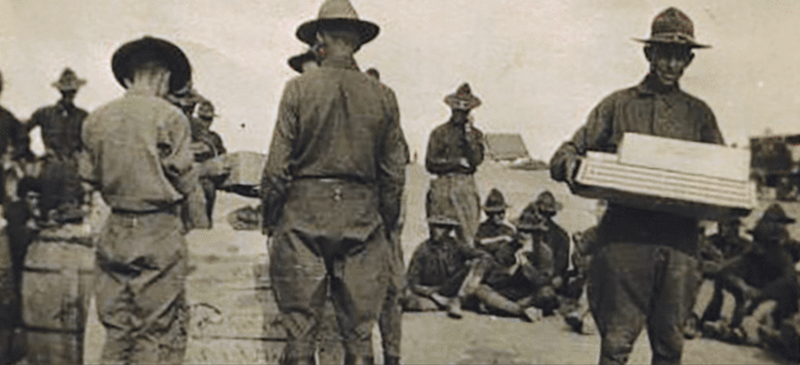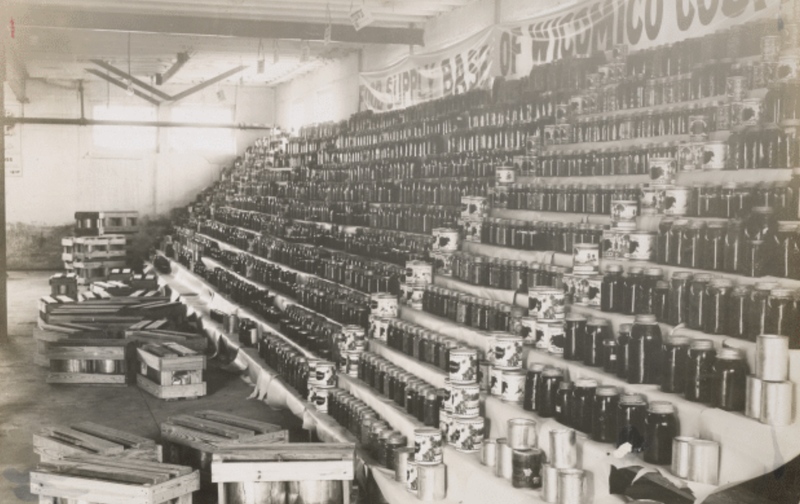Military Support at Home and Abroad
World War I propelled the Red Cross into public recognition and was a catalyst for home-front chapters across the United States, including Delmarva. While the Wicomico Chapter’s first order of business was acquiring a Maryland flag for Salisbury’s Company I, volunteers in the Production Corps filled 153 “comfort bags” with various necessities, toiletries, and clothing repair items for soldiers. Local volunteers knitted wool seaman’s jackets, mufflers, and mittens, sending 3,124 articles of clothing by June 1917.
Red Cross chapters on Delmarva also had a Home Service Corps to assist the families of service members and veterans. This assistance included providing communication between troops and their families, financial aid, and education about re-entering civilian life. Moreover, volunteers on the home-front loaned their cars to a Motor Corps that provided transportation support for canteens, hospitals, camps, and a public service campaign to help combat the influenza outbreak of 1918.
During World War II, Red Cross volunteers on Delmarva donated a significant amount of supplies in support of the American troops abroad. After hand-crafting clothing, preparing “kit-bags,” and collecting items such as cigarettes and playing cards, the Red Cross shipped the products to soldiers across the country and overseas. Throughout the war, local chapters added new corps, such as the Surgical Dressings Corps, and activities expanded to include blood donations and nurse recruitment.
However, Red Cross assistance in World War II was not immune from criticism. Service members stationed abroad oftentimes had a negative impression of the Red Cross because it charged 25 cents for coffee and doughnuts. In fact, it was the Department of Defense who ordered charity organizations to charge soldiers for food and drink in countries whose soldiers had to pay for their own food.


